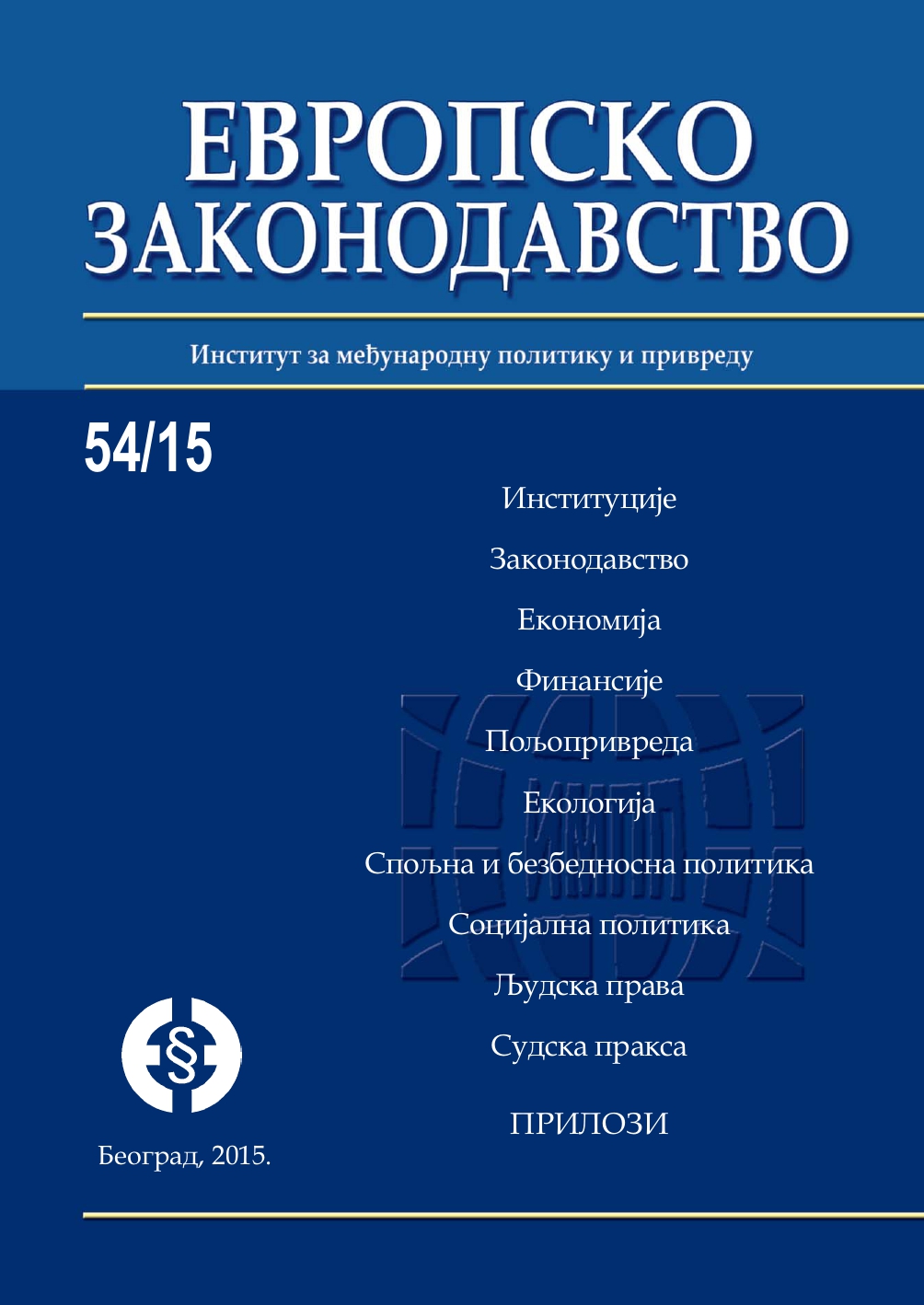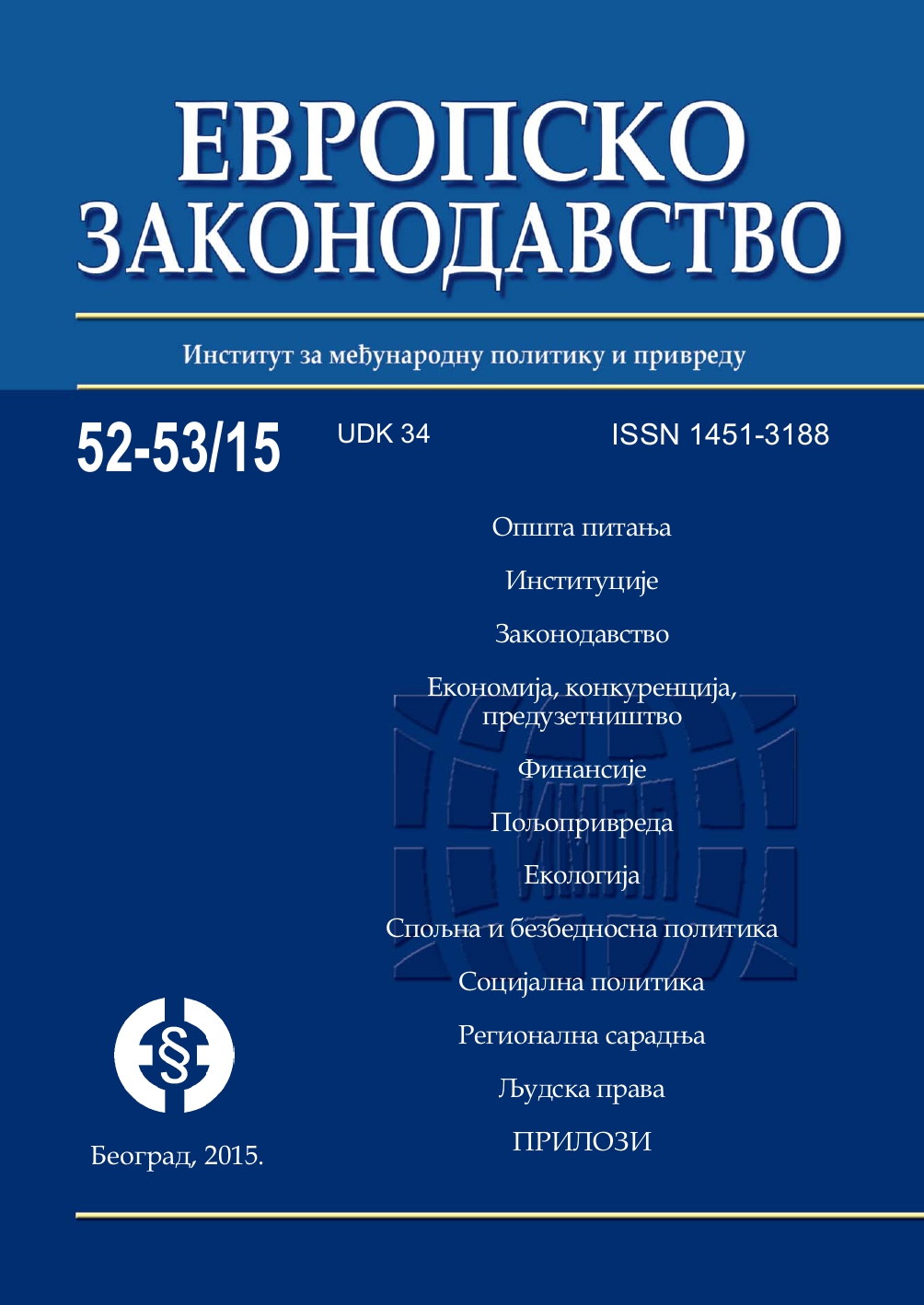Author(s): Vladimir Čolović / Language(s): Serbian
Issue: 52-53/2015
The Regulation EU No. 1215/2012 of the European Parliament and of the Council from 12 December 2012 on jurisdiction and the recognition and enforcement of judgments in civil and commercial matters defines, among other things, the questions of lis pendens and related actions. This Regulation replaced the Regulation 44/2001, and one of the reasons for this replacement is the inadequate application of the rules of lis pendens in relation to the relationship between the choice of court settlement and parallel procedures. When we are talking about the regulation of lis pendens, in the interest of the proper trial and the conduct of the proceedings, it was necessary to reduce the possibility of conducting similar procedures and ensure that it does not make different decisions in the different Member States. There should be a clear and effective mechanism for resolving cases of parallel proceedings - lis pendens and related claims, i.e., proceedings, and to prevent problems arising from different national legislations, i.e., provisions in those jurisdictions, in relation determining the moment when it is considered that the proceedings commenced. The Regulation 1215/2012 defines lis pendens on general way and determines the following: where proceedings involving the same cause of action and between the same parties are brought in the courts of different Member States, any court other than the court first seised shall of its own motion stay its proceedings until such time as the jurisdiction of the court first seised is established. The foregoing does not prejudice the application of provisions regulating the exclusive jurisdiction as a result of an agreement of the parties, which means that every court of another Member State interrupts the proceeding until such time as the court which as a first has initiated proceedings on the basis of the agreement of the parties, not declared incompetent. Also, the Regulation 1215/2012 defines the situation where related actions are pending in the courts of different Member States, any court other than the court first seised may stay its proceedings. Actions are deemed to be related where they are so closely connected that it is expedient to hear and determine them together to avoid the risk of irreconcilable judgments resulting from separate proceedings. The Regulation 1215/2012 applies from January, 10, 2015. The paper also paid attention to the regulation of this matter in Serbia i.e., in the Act on solving the conflict of laws with the rules of other countries and in the Draft of the Act on Private International Law. The Act on solving the conflict of laws with the rules of other countries define only lis pendens, and the Draft of Act on private International Law regulates lis pendens and related actions.
More...


